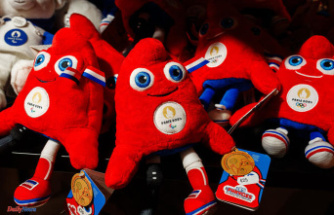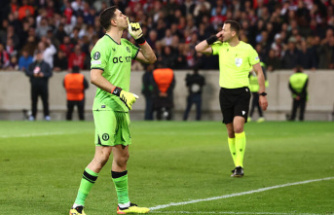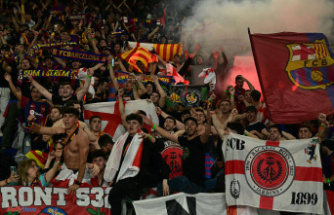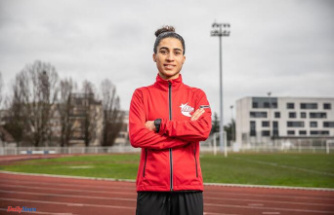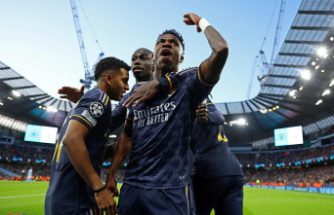The University of Fighting Düsseldorf is one of the leading locations in the German MMA scene. The gym has some of the best cage fighters in its ranks and deliberately takes a very international approach. You can find it in several areas.
The calculation is simple: MMA NRW = UFD. Anyone who deals with mixed martial arts in North Rhine-Westphalia cannot avoid the University of Fighting Düsseldorf (UFD). The gym has been one of the leading locations in the German MMA scene for years. But why are so many of the best fighters drawn to the location on Kölner Strasse? "It's like asking a footballer why he plays for Real Madrid. We are the best gym in Europe. The constellation here is unique," explains 31-year-old middleweight fighter Kerim Engizek confidently.
Self-confidence is no accident. Similar to Real Madrid, the Düsseldorf fighters are regularly at the top on a national and international level. No other gym in Germany can boast as many former and current champions in large organizations as the UFD. This can be seen right at the entrance to the gym - the showcase with the championship belts is full to bursting.
The gym bears the signature of the two brothers Ivan and Tomi Dijakovic, who founded the UFD in 2013. Three years later they moved to the current location. Around 40 professional fighters train on 1200 square meters, and hundreds of members let off steam in martial arts courses such as boxing, kickboxing, wrestling, Luta Livre and Brazilian Jiu-Jitsu. Boxing ring, crossfit area, MMA cage and a large sparring area, plus a sauna and a cold pool. Training and regeneration are fully covered in Düsseldorf.
Ivan and Tomi share the management of the gym and the fighters like brothers. Both are involved in all areas, so they can better contribute their strengths. Tomi takes care of the organization and administration, Ivan takes care of the matchmaking and the contract negotiations of the athletes. "Professionals should focus exclusively on fighting. That's the most important thing in a career. Planning who, when and how - we take care of that," explains Tomi Dijakovic in an interview with ntv.de.
During our two-day visit to the gym, it becomes apparent almost every hour how diverse the whole thing can be. The two brothers keep picking up the phone. Everything has to be regulated in the background. Tomi Dijakovic gets a call from his fighter Antun Račić (former KSW Bantamweight Champion) who is scheduled to fight in Poland and needs to be picked up at Warsaw Airport. The two are compatriots and speak Croatian. After a brief exchange, the UFD manager rings the bell directly with the organizer's driver and arranges the pickup in English.
The gym's approach of operating primarily on an international level was a very conscious decision, as brother Ivan Dijakovic explains: "We have over 40 MMA fighters, but for me professional is not the same as professional. You can only call yourself that when you can earn your living with sport. And that's mainly possible in the big international organizations."
The UFD fighters should not only be there, but also be able to fight for titles. "We have the strongest fighters in this field. Roberto Soldic was a two-time KSW champion, the strongest organization in Europe. Now he fights in ONE Championship. Abus Magomedov is in the UFC, where he will fight for the title in the future Fight middleweight. David Zawada was in the UFC and will be back in a US organization soon. Simon Biyong is with Bellator, Lom-Ali Eskiyev is with KSW - so we already have a lot of fighters in the top leagues."
The national organizations don't leave the Dijakovic brothers out, after all both organize fights for professionals and amateurs with their own promotion "Elite MMA Championship" (EMC). When it comes to events, there is still a lot to do in Germany "so that we can fill the big halls," says Ivan Dijakovic. "We're on the right track, but if I look at Poland, for example, then we still need five years to get there. MMA Germany doesn't have a face in the biggest organizations yet - in the UFC or in ONE Championship." Dijakovic wants a "Boris Becker moment" in German MMA. "Boris won Wimbledon back then and suddenly everyone wanted to play tennis." That would attract more media attention and put the sport in a different light. "Educational work" is the most important thing, after all, many would still believe that there are no rules in MMA.
The UFD wants to shape the characters who successfully represent German MMA internationally. And in addition to the top people mentioned by Dijakovic, there are several candidates who are called to higher things. Kerim Engizek would like to prove his skills in the UFC, with eleven wins in a row his cards are even good to soon climb into the octagon in the "Champions League" of MMA. A similar plan is being pursued by Islam Dulatov, 24, who wants to "put in four or five more fights" in smaller organizations like the German Liga NFC, where his next fight is in December before moving to the UFC.
Dulatov has a very unusual second mainstay that is not associated with the sport. He models for brands like Gucci and Hugo Boss. "After my next fight, I'll have to catch up on a few jobs that I've put on hold because of my sporting development," said Dulatov. Light heavyweight Marc Doussis took a different path to UFD. The 32-year-old is actually a police officer by profession, but is currently taking a break to concentrate fully on his sporting career. "Even if MMA is becoming more and more socially acceptable, there is still a lack of recognition in some areas," says Doussis, who now competes with the Polish organization KSW. So the stories behind the fighters are there. A good basis for addressing a broad audience. Now these MMA diamonds just need to be cut.
And that's why the UFD team relies on real specialists when it comes to trainers. The Brazilian Leozada Nogueira leads the Jiu-Jitsu units of the professionals, his compatriot Gleison Tibau is responsible for the MMA grappling. Ivan Hippolyte conducts the MMA strike. The Dutchman travels from Amsterdam twice a week and is present at all of his protégés' fights in the cage. Loudly and with conviction, he gives the fighters commands from warming up to individual exercises. The tone is military, whoever dawdles gets a stern look. Even when it comes to professional fighters, authority plays a big role. "Without this rigor, training at this level cannot be carried out efficiently," says Tomi Dijakovic.
The unit under Hippolyte is considered the toughest in the UFD Gym. After intensive punch and kick combinations on the sandbag, there are five more rounds of five minutes of sparring - this corresponds to a title fight in MMA. In general, the intensity in the sessions of the pros is remarkably high. "Hard sparring doesn't mean knocking someone out. Of course body hits happen," says David Zawada after the session. The 32-year-old has been in the UFD for nine years and is one of the most established fighters. The level is always very high, but the risk of injury is low. "Everyone is careful here," says Zawada. When it comes to punches and kicks, sparring is all about precision. The fighters only give 100 percent when the sparring shifts to wrestling. "You have to step on the gas, because that's when an MMA fighter needs the greatest physical condition," emphasizes Zawada.
And here, too, the UFD has a real specialist at hand. Max Schwindt has been training the pros for two years, before that he was the coach of a Bundesliga wrestling team for years. He sees wrestling as the best basis for getting into MMA, even if many techniques are not transferrable. "In MMA, there are no ratings for nice throws," says Schwindt. But the basics are essential. "If I can wrestle, I choose where the fight takes place." This applies to both offensive and defensive actions. "If I'm a strong boxer but can defend takedowns, of course I'll stand still. A strong wrestler will always try to ground the fight."
Specialists at all levels of MMA, international relationships and successful fighters in the sport's top organizations - the UFD package sounds good, but "just keep going" is not an option for Tomi Dijakovic either. "Stagnation isn't progress. We always want the professionals to develop further. Young fighters are coming, but the professionals we have are currently in their prime. So the basis has been created for them to be able to continue fighting for several more years ."
In the meantime, however, the gym has reached its capacity limits. "We see the encouragement from society. More and more people are becoming members. Making the UFD Gym bigger - that's an idea that both brothers are playing with, but for once the ideas differ. "Ivan would like one open a second location, I have a larger hall in mind," explains Tomi Dijakovic. His dream is a hall with an area of 3,000 to 4,000 square meters. "American style," he adds. Sounds really international again that fit well in any case.


